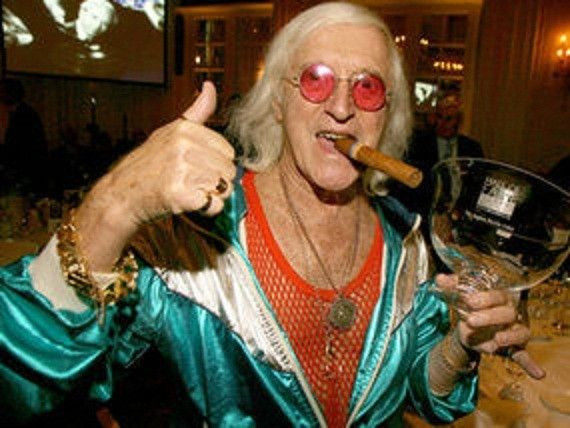Jimmy Savile Sex-Abuse Scandal: The BBC’s ‘Phone-Hacking Moment’

Following allegations that the late Jimmy Savile sexually abused underage girls for more than four decades, the BBC has launched two investigations into the scandal. But some British officials are saying that’s not enough.
The Guardian reports that Ed Miliband, the leader of the Labor party, has called on Prime Minister David Cameron to “do right by the victims” and set up an independent Leveson-style public inquiry. Miliband joined a chorus of British officials who are comparing the Savile scandal to the phone-hacking controversy surrounding Rupert Murdoch’s News International, for which a public inquiry was launched last year and is still ongoing. (Murdoch, incidentally, is a vocal critic of the BBC for its reliance on government subsidies.)
Conservative Parliament member Philip Davies wrote to Britain’s Office of Communications, which oversees the broadcasting industry, saying that that a similar investigation is clearly warranted given the seriousness of the allegations, according to the Guardian. “This is the BBC's phone-hacking moment -- inappropriate behavior going on over a number of years that people were aware of and did nothing about,” he wrote. “By definition, all the consequences that flowed for News International ... should apply to the BBC. This is much worse than phone hacking.”
“I don't think we can be complacent [and say], ‘Oh, that was 20 years ago, so actually it would never happen now,’" Harriet Harman, a Labor member, agreed, telling the BBC that important lessons need to be learned.
Britain’s culture secretary, Maria Miller, has said that the co-investigations by the BBC and Scotland Yard are adequate. Among questions being asked are whether or not the government-funded broadcaster willingly turned a blind eye to the alleged abuse and why an investigative documentary about Savile was shelved last December, just days before it was supposed to air.
Mark Thompson, the BBC’s former director general who left in August to become the CEO of the New York Times Company (NYSE: NYT), told BBC Radio that he was not involved in the decision to shelf the documentary.
As the host of such programs as “Top of the Pops” and “Jim’ll Fix It,” Savile was a beloved figure and household name in the UK, a kind of British Dick Clark who for decades presided over awards presentations and televised charitable events. Shortly after his death at the age of 84 last October, his body was carried in a gold coffin through the streets of his hometown of Leeds.
The cigar-chomping presenter was posthumously disgraced this month after several women came forward to say that he had sexually abused them as teenagers. The alleged abuse was first made public in an expose aired by BBC’s rival, ITV, on Oct. 3.
British police say Savile may have abused up to 60 girls as young as 13, with incidents dating back to 1959. Abuse may also have taken place at psychiatric hospitals where the famously charitable Savile often volunteered his time. Two British charities named after Savile released statements earlier this month saying they are considering changing their names.
As expected, longtime critics of the BBC are using the scandal as an excuse to take shots at the broadcaster. As the New York Times’ Bill Keller pointed out on Sunday, Rupert Murdoch gloatingly reminded his followers via tweet that Thompson, the Times’ incoming CEO, formerly ran the BBC.
George Entwistle, the BBC’s director general, is expected to appear for questioning before members of Parliament next week to answer questions about the scandal.
According to the Telegraph, Prime Minister Cameron said on Tuesday that he has “not ruled out” the idea of setting up a public inquiry.
© Copyright IBTimes 2024. All rights reserved.






















